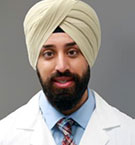Overview
The clinical service of the cardiac division at Massachusetts General Hospital offers over 4,000 admissions, 15,000 outpatient visits and 8,000 invasive cardiovascular procedures annually (of these roughly 400 to 500 are dedicated peripheral procedures).
The Vascular Diagnostic and Intervention Fellowship is a one-year program concentrating both on diagnosis and management of patients with peripheral vascular disease, and the performance of percutaneous peripheral vascular procedures. The program is in addition to and complementary to the ACGME-accredited Cardiovascular Disease and Interventional Cardiology fellowship programs.
Duration
The Vascular Diagnostic and Intervention Fellowship Program is a one-year GME approved program starting on July 1 of each year.
Program Description
The central goal of the Vascular Medicine and Intervention Fellowship Program is to provide integrated training in the diagnosis, care and percutaneous treatment of patients with vascular disease. We strive to allow fellows to assume positions of academic leadership in the field of cardiovascular medicine.
This fellowship program provides an opportunity to gain both knowledge and procedural expertise in the evaluation and management of patients with a wide spectrum of vascular diseases including:
- Acute or chronic arterial occlusive disease of the lower extremities
- Renovascular disease
- Diseases of the thoracic aorta and brachiocephalic arteries
- Arterial diseases of the extra-cranial, intracranial, subclavian and vertebral artery
- Arterial diseases of the upper extremities
- Visceral arterial diseases
- Arterial diseases of the abdominal aorta and iliac artery
- Peripheral artery diseases of lower extremities
- Acute and chronic venous thromboembolic diseases (DVT/PE, CVI)
- Acute and chronic pulmonary vascular disorders
- Thrombophilic states and their clinical manifestations
- Venous and arterial compression syndromes
- Aneurysmal diseases
- Lipedema and lymphedema
The fellow will develop a broad-based knowledge of diagnostic and endovascular interventional techniques for peripheral vascular disease and will acquire the requisite technical skills of invasive diagnostic imaging and interventions. These skills encompass the full repertoire of endovascular techniques, including vascular access, diagnostic angiography and venography, catheter-based angioplasty, thrombectomy/atherectomy, catheter-directed thrombolysis and stenting. In addition, paramount is the prompt recognition and management of associated complications, which will involve various vascular beds.
In addition, the fellow will continue to perform a limited number of coronary interventions to maintain and reinforce his/her expertise in these procedures.
Prerequisites for Program Entry
The fellow must have prior cardiology fellowship training, or if arising from a surgical background, should have completed general surgical training, and be preparing for a career in vascular surgery. A prior year of interventional coronary artery training is preferred from cardiology candidates, though this is not required of surgical candidates.
Clinical Experience/Patient Management
The fellow will be actively involved in both the outpatient and inpatient management of vascular patients, including those residing in the intensive care units and emergency department.
Inpatient Clinical Consultation
The fellow will participate in the inpatient consultation service. Responding to vascular medicine consultations, the fellow will see and evaluate inpatients with a wide variety of vascular diseases. The fellow will obtain a comprehensive history of the patient’s presentation, perform a disease-centered physical examination, and actively participate in the interpretation of the non-invasive test data, including physiological and duplex ultrasound studies, complemented by cross-sectional imaging when available. The respective cases will be discussed and pertinent physical examination, laboratory and noninvasive study data reviewed by the attending and the fellow. The fellow will be trained to integrate the patient’s entire medical/clinical presentation and non-invasive data to make accurate diagnoses and appropriate clinical decisions with respect to further invasive assessment of the patient and therapeutic interventions. The merits of medical versus endovascular versus surgical therapy will be discussed for each case by the attending and fellow. Written consultation will be provided addressing the pertinent issues relevant to the patient.
Outpatient Service
The fellow will see patients along with an attending from the vascular medicine section in the outpatient setting. As described in the inpatient consultation section above, the fellow will be involved in the evaluation and management of patients in the clinic setting as well. Outpatient follow-up will be performed for all the patient groups as outlined above.
Endovascular Intervention
The development and mastering of excellent vascular angiographic and interventional skills will be paramount for the fellow. Under guidance of the attending physician responsible for the procedure, the fellow will acquire the skills of diagnostic angiography and catheter-based interventions within the peripheral vasculature. The fellow will be expected to participate in the procedural care of patients that he/she has cared for clinically, either in an outpatient or inpatient setting. The fellow will be trained to use appropriate endovascular invasive techniques to improve symptoms, reverse critical ischemia, and avert or limit the extent of vascular bypass surgery necessary in patients with peripheral artery disease. The fellows will acquire the following major procedural skills:
Vascular Access
The fellow will be trained in different techniques of gaining safe and secure vascular access with ultrasound-guidance including:
- Antegrade common femoral approach
- Retrograde common femoral artery approach
- Popliteal artery access
- Radial and brachial access
- Pedal access
- Venous access
The fellow will learn which approach is appropriate for the percutaneous treatment of target lesions in various peripheral arteries, including the external iliac, common femoral artery, superficial femoral artery, tibial vessels, renal artery, subclavian and carotid arteries.
Diagnostic Imaging
The fellow will be exposed to appropriate vascular imaging techniques applied for visualization of various vascular beds. He/she will learn the radiographic views to evaluate:
- Arch of the thoracic aorta and great vessels including the brachiocephalic arteries
- Carotid bifurcation
- Abdominal aorta, iliac and arteries of the lower extremities
- Renal and mesenteric arteries
The fellow will learn to use the appropriate diagnostic catheters and angiographic views to identify the sites of atherosclerotic (or other etiology) obstruction, delineate the severity of the stenoses, and determine if the patient is suitable for endovascular and/or surgical intervention.
Percutaneous Interventions
The fellow will be trained in the selection and use of guiding catheters, guidewires, balloon catheters, atherectomy devices and stents designed for the peripheral vasculature. He/she will be trained to perform the critical interventions applied in endovascular interventions including:
- Aortoiliac Intervention
- Femoral-popliteal Intervention
- Infrapopliteal and Infrageniculate Intervention
- Renal Artery Intervention
- Mesenteric Artery Intervention
- Subclavian and Innominate Intervention
- Extracranial Carotid and Vertebral Artery Intervention
The fellow will develop an understanding of the impact of patient characteristics, target vessel location and lesion morphology on the technical and clinical success rate of percutaneous interventions.
The strengths and limitations of differing percutaneous interventional approaches, including balloon angioplasty, atherectomy devices, drug-coated balloons and both balloon-expandable and self expanding stents, and other commonly used interventional devices will be discussed by the attending with the fellow.
The fellow will be trained in the management of mechanical complications of peripheral vascular interventions including dissection, thrombosis, spasm, perforation, embolization and acute vessel thrombosis.
Education & Training
The fellow will attend and actively participate in the following regularly scheduled teaching programs including:
- Interventional Cardiovascular Conference: A weekly conference that reviews peripheral and coronary interventions from the week, with an emphasis toward standard and unconventional techniques, adjuvant therapies and recognition and management of complications. The fellow will be responsible to present cases of peripheral vascular interventions, and to review relevant topics and published cardiovascular data related to the present case
- Cardiology Grand Rounds: A weekly scheduled combined lecture-seminar presentation
- Journal club: A quarterly vascular journal club
- Pulmonary embolism response team (PERT) educational meeting: A bi-monthly multidisciplinary educational meeting to review technique and literature on the topic
- Venous conference: A monthly multidisciplinary conference focusing on the diagnosis and management of venous disease
- Carotid conference: A monthly multidisciplinary conference focusing on the diagnosis and management of carotid artery disease
Teaching Responsibilities
Fellows will have the opportunity and are expected to provide teaching to medical students, interns and residents, other fellows and staff. They are expected to present in the above educational conferences.
Evaluation
The fellow will be evaluated regularly (twice during the year) in oral and form by the attending physicians participating in instruction and supervision of this fellowship program. The attending will regularly provide verbal and written feedback to the fellow about his/her performance. The fellow will also have the opportunity to evaluate their staff physicians and the quality of teaching/instruction in written form.
How to Apply
All fellowship positions for 2026-2027 have been filled.
Applications are accepted on a rolling basis up to a year prior to the intended start date. The program starts on July 1st of each year. To submit an application, please submit the following documents in one PDF file to the Dropbox Application Portal:
- CV
- Personal statement
- Photocopy of USMLE transcripts
- Three letters of reference
- Copy of ECFMG Certificate, if applicable
- Verification of current visa status, if applicable
Once submitted, please email
Allegra Hortsmann for confirmation of receipt. Allegra Hortsmann is available to answer any questions or concerns at
ahorstmann@mgh.harvard.edu. We look forward to reviewing your application!
Meet Our Fellows
 Priti Mehla, MD
Priti Mehla, MD
Interventional Cardiology Fellowship: Thomas Jefferson University Hospital, Philadelphia, PA
Cardiovascular Medicine Fellowship: Danbury Hospital, Danbury, CT
Medicine Residency: University of Connecticut, Farmington, CT
Medical School: Pt. B.D.S. University of Health Sciences, Rohtak, India
 Inderjit Singh, MD
Inderjit Singh, MD
Interventional Cardiology Fellowship: Albert Einstein Medical Center Philadelphia, PA
Cardiovascular Medicine Fellowship: Rutgers New Jersey Medical School, Brunswick, NJ
Medicine Residency: Drexel University College of Medicine, Philadelphia, PA
Medical School: Windsor University School of Medicine, Canyon, St. Kitts and Nevis
 Ganesh Thirunavukkarasu, MD
Ganesh Thirunavukkarasu, MD
Interventional Cardiology Fellowship: George Washington University, Washington D.C.
Cardiovascular Medicine Fellowship: State University of New York-Downstate, Brooklyn NY
Medicine Residency: State University of New York-Downstate, Brooklyn NY
Medical School: Chengalpattu Medical College, India







 Priti Mehla, MD
Priti Mehla, MD Inderjit Singh, MD
Inderjit Singh, MD Ganesh Thirunavukkarasu, MD
Ganesh Thirunavukkarasu, MD